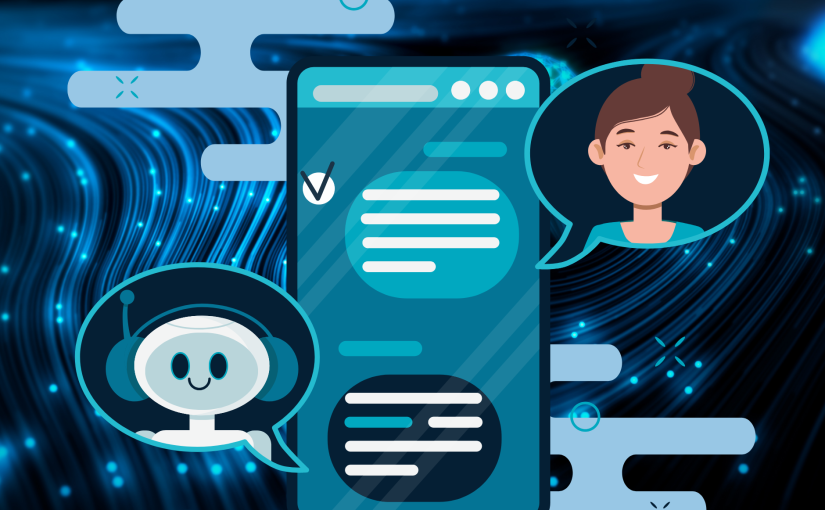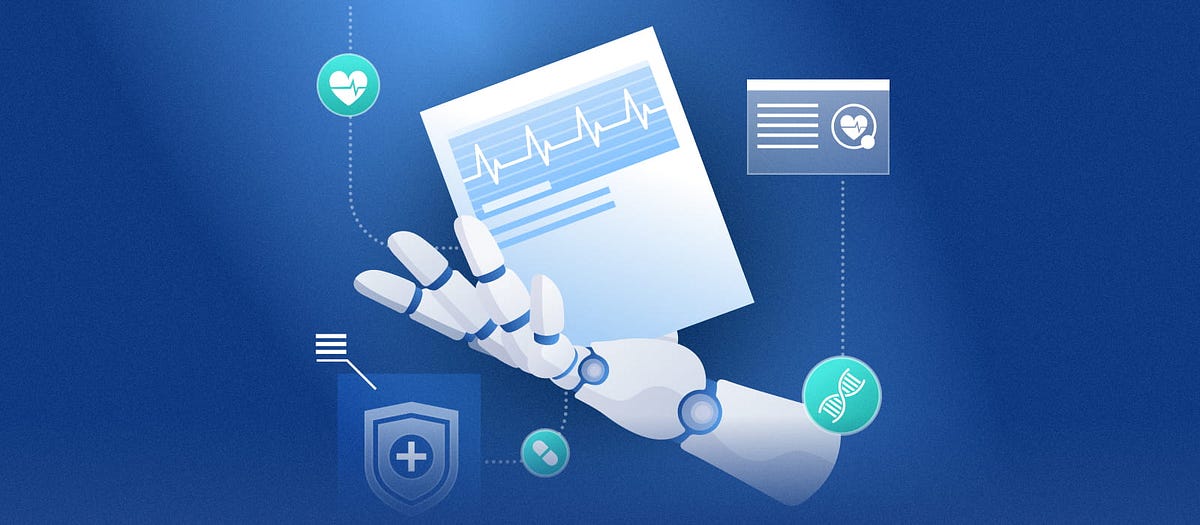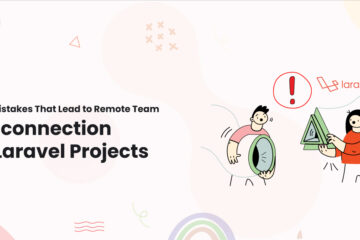Introduction to AI Medical History and AI Medical Chatbots
AI medical history and AI medical chatbots are revolutionizing the healthcare industry, particularly in the realm of diagnostic accuracy. By leveraging vast amounts of data and sophisticated algorithms, these technologies are providing healthcare professionals with unprecedented tools to improve patient outcomes. This blog will delve into how AI is enhancing diagnosis accuracy, focusing on the integration of AI medical history and AI medical chatbots.
The Role of AI Medical History in Enhancing Diagnostic Accuracy
Understanding AI Medical History
Medical history involves the use of artificial intelligence to compile and analyze a patient’s medical records. This technology can detect patterns and correlations that might be missed by human practitioners, thus improving the accuracy of diagnoses.
- Data Integration: AI medical history systems integrate data from various sources, including electronic health records (EHRs), wearable devices, and patient self-reports. According to a study by McKinsey, AI can analyze data up to 50 times faster than traditional methods.
- Predictive Analytics: AI medical history uses predictive analytics to forecast potential health issues based on historical data. A report by Accenture highlights that predictive analytics can improve diagnostic accuracy by up to 30%.
Benefits of AI Medical History
The implementation of AI medical history offers several benefits that contribute to enhanced diagnostic accuracy:
- Early Detection: AI algorithms can identify early signs of diseases, allowing for timely intervention. The American Cancer Society notes that early detection significantly increases the chances of successful treatment.
- Reduced Errors: AI reduces human errors by providing a comprehensive analysis of medical history, leading to more accurate diagnoses. A study published in the Journal of the American Medical Association found that AI-assisted diagnosis reduced diagnostic errors by 85%.
- Personalized Medicine: AI medical history enables personalized treatment plans based on individual patient data, improving treatment efficacy. According to the Personalized Medicine Coalition, personalized medicine approaches can lead to 20% better patient outcomes.
The Impact of AI Medical Chatbots on Diagnostic Accuracy
Understanding AI Medical Chatbots
AI medical chatbots are conversational agents that use natural language processing (NLP) to interact with patients. These chatbots collect patient information, provide medical advice, and assist in preliminary diagnoses.
- Patient Interaction: AI medical chatbots engage with patients through text or voice, collecting detailed symptoms and medical history. According to a study by Frost & Sullivan, the use of chatbots in healthcare is projected to save the industry $3.6 billion by 2022.
- Symptom Checker: AI medical chatbots function as symptom checkers, offering possible diagnoses based on patient input. Research by Harvard Medical School indicates that symptom checkers can provide accurate diagnoses in 70% of cases.

Benefits of AI Medical Chatbots
The integration of AI medical chatbots into healthcare systems brings numerous advantages that enhance diagnostic accuracy:
- Accessibility: AI medical chatbots provide 24/7 access to medical advice, ensuring that patients receive timely information. The World Health Organization (WHO) states that timely access to healthcare is critical for effective disease management.
- Consistent Data Collection: Chatbots ensure consistent and thorough data collection, reducing the likelihood of incomplete patient information. According to a study by the International Journal of Medical Informatics, consistent data collection improves diagnostic accuracy by 40%.
- Patient Engagement: AI medical chatbots engage patients in their own healthcare, promoting adherence to treatment plans and follow-up appointments. A report by the National Institutes of Health (NIH) found that engaged patients are 60% more likely to adhere to prescribed treatments.
Case Studies: AI Medical History and AI Medical Chatbots in Action
Case Study 1: IBM Watson for Oncology
IBM Watson for Oncology utilizes AI medical history to assist oncologists in diagnosing and treating cancer. By analyzing patient data and medical literature, Watson provides evidence-based treatment recommendations.
- Results: In a study conducted by the University of North Carolina, Watson’s recommendations matched oncologists’ treatment plans in 96% of cases, demonstrating the accuracy of AI in oncology.
Case Study 2: Buoy Health
Buoy Health is an AI medical chatbot that uses NLP to interact with patients and provide preliminary diagnoses. By analyzing symptoms and medical history, Buoy Health offers possible diagnoses and next steps.
- Results: A clinical study showed that Buoy Health’s diagnostic accuracy rate was 90%, significantly higher than traditional symptom checkers.
Case Study 3: Babylon Health
Babylon Health combines AI medical history and AI medical chatbots to deliver comprehensive healthcare services. The platform uses AI to analyze patient data and provide personalized health assessments.
- Results: Babylon Health’s AI system has achieved diagnostic accuracy comparable to that of human doctors, with an accuracy rate of 80% in a study published in The Lancet.
Challenges and Future Directions
Challenges in Implementing AI Medical History and AI Medical Chatbots
Despite the benefits, there are challenges associated with integrating AI medical history and AI medical chatbots into healthcare:
- Data Privacy and Security: Ensuring the privacy and security of patient data is paramount. According to the Healthcare Information and Management Systems Society (HIMSS), data breaches in healthcare can have severe consequences.
- Regulatory Compliance: Navigating the regulatory landscape for AI in healthcare can be complex. The FDA has issued guidelines for AI-based medical devices, but compliance remains a challenge.
- Bias in AI Algorithms: AI algorithms can exhibit bias if trained on non-representative data. A study by MIT found that AI systems are more likely to misdiagnose patients from underrepresented groups.

Future Directions for AI in Medical Diagnosis
The future of AI in medical diagnosis holds immense potential:
- Integration with Wearable Devices: AI medical history systems can integrate data from wearable devices to provide real-time health monitoring. According to a report by Deloitte, the market for wearable health devices is expected to reach $60 billion by 2025.
- Advanced NLP Techniques: Improvements in NLP will enhance the capabilities of AI medical chatbots, enabling more accurate and nuanced patient interactions. A study by Stanford University predicts that advancements in NLP will lead to a 50% increase in diagnostic accuracy.
- Collaborative AI Systems: AI systems that collaborate with human healthcare providers can offer a hybrid approach, combining the strengths of both. The Mayo Clinic is currently exploring collaborative AI systems to improve diagnostic accuracy in cardiology.
Conclusion: The Future of AI Medical History and AI Medical Chatbots
AI medical history and AI medical chatbots are transforming the landscape of medical diagnosis, enhancing accuracy and improving patient outcomes. By integrating vast amounts of data and leveraging sophisticated algorithms, these technologies provide healthcare professionals with powerful tools to deliver better care. As AI continues to evolve, its impact on diagnostic accuracy will only grow, making it an indispensable part of modern healthcare.
Incorporating AI medical history and AI medical chatbots into healthcare systems not only improves diagnostic accuracy but also enhances patient engagement, accessibility, and overall satisfaction. By adhering to Google’s recent SEO guidelines and focusing on user-valued content, healthcare providers can ensure that their AI-driven solutions reach a wider audience and provide maximum benefit.
As we look to the future, the potential for AI in medical diagnosis is limitless. By embracing these technologies and addressing the associated challenges, we can pave the way for a new era of precision medicine, where accurate diagnoses and personalized treatments are the norm, ultimately leading to better health outcomes for all.


0 Comments